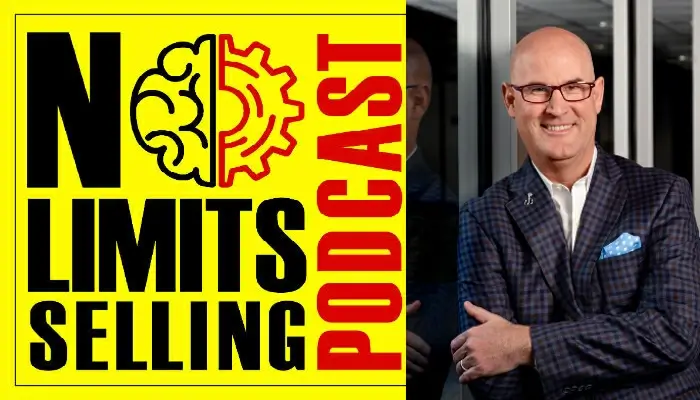Stan Phelps on Standing out in a Crowded Marketplace
Stan Phelps walks the walk. He stands out in the sea of sameness by modeling his own Differentiated Experience (DX) message: Differentiation isn’t just about what you say, it’s about what you do and, more importantly, how and why you do it. Stan leverages his unique collection of 5,000+ case studies on customer, employee, and brand experience to engage audiences with informative learning-based experiences. He challenges audiences to think differently by exploring new opportunities to be more successful in tomorrow's changing world.
A show and tell speaker, Stan empowers audiences to take action that delivers bottom-line impact. He strives to change the paradigm of marketing by encouraging audiences to focus on experiences as the ultimate competitive differentiator. He believes purposeful DX wins the hearts of employees andcustomers, and differentiation ultimately boosts loyalty, retention, referrals, and results.
Stan is a Forbes Contributor, TEDx Speaker, IBM Futurist, Certified Speaking Professional™, and bestselling author of the 13-book Goldfish Series that begins with Purple Goldfish 2.0 - 10 Ways to Attract Raving Customers.
A masterful storyteller who quickly connects with audiences, Stan has delivered keynotes and workshops for Fortune 100 brands including IBM, Target, and more. He works directly with you to customize content that matches your audience and your goals to create a memorable and meaningful experience every time. Count on Stan to show up early, arrive prepared, and disrupt the all-work-and no-play methodology with his sharp wit and trademark showmanship. He makes it his mission to exceed expectations and inspire audiences in ways they just can’t help but talk about — and won’t soon forget.
Find Stan’s keynotes and workshops at StanPhelpsSpeaks.com.

Contact Stan:
[EDITOR’S NOTE: This podcast is sponsored by No Limits Selling. It is a fun, fast-paced podcast that delivers hard-fought business advice that you can implement today to improve your sales and performance]
Interested In Our Real Estate Coaching Services? Explore Our Website: Link
Feeling Not Well Today? You Can Use Our Mindset Boosters App To amp Up Your Mood: Link
Find us on Social Media:
LinkedIn | Facebook community | Instagram
Like what do you listen to? Subscribe to our podcast!
Ready to become fearless? We can help you become fearless in 60 days so you accomplish more in your career Schedule A 15 min Call with Umar
Summary
Introduction and Background
The podcast commences with the host, Umar Hameed, introducing Stan Phelps, a speaker with the National Speakers Association (NSA), who is making a significant difference in the world. Stan is invited to speak at the American Marketing Association in Baltimore, where he will discuss how to "get weird" in the business world.
Stan Phelps is a marketing enthusiast with two decades of experience in the field. He has worked on both the agency and brand sides, with companies like IMG, Adidas, and the PGA of America. He believes that marketing needs to be more about the customer and less about chasing prospects. His purpose is to examine the future of what marketing should become.
The Goldfish Series
Stan's book series, "Goldfish," is based on the idea that little things can truly make the biggest difference. The series explores how businesses can differentiate and stand out by doing little things for their customers and, more importantly, their employees. The latest book in the series, "Pink Goldfish," is the sixth color in the series and the seventh book overall.
Anecdotes and Stories
Stan shares a few interesting anecdotes and stories throughout the podcast. One such story is about Nordstrom, a company known for its exceptional customer service. Nordstrom empowers its employees to make judgments on their own and trust them to do the right thing. They have a business card that says, "At Nordstrom, we have only one rule. Use your best judgment." This approach instills a sense of trust and responsibility in the employees.
Stan also shares a legendary story about Nordstrom accepting a return of snow tires, even though they don't sell them. This story is often told to illustrate the high level of service that Nordstrom provides.
Conclusion and Takeaways
Towards the end of the podcast, Stan mentions that attendees of his talk at the American Marketing Association in Baltimore will walk away with seven different ways to stand out in a crowded marketplace. They will also learn the four steps they need to put these strategies into effect.
The podcast concludes with Umar thanking Stan for the conversation and encouraging listeners to leave a five-star rating on iTunes if they enjoyed the episode.
This podcast offers valuable insights into the importance of customer service, employee empowerment, and the little things that can make a big difference in business. Stan Phelps' experiences and stories provide a unique perspective on these topics, making it a must-listen for anyone interested in marketing and business.
Questions & Answers
Who is Stan Phelps?
What is the "Goldfish" series?
What is the latest book in the "Goldfish" series?
What is the story about Nordstrom that Stan Phelps shares in the podcast?
What will attendees learn from Stan's talk at the American Marketing Association in Baltimore?
What is the main takeaway from the podcast?
How can listeners support the podcast?
Don’t miss this opportunity to transform your real estate career with one-on-one coaching. As an experienced real estate coach, I, Umar Hameed, am dedicated to helping you unlock your full potential and achieve your real estate goals. To learn more about who am I and my clients ↓
If you’re ready to take the next step, book an appointment with me today and begin your journey toward success in the real estate industry.
